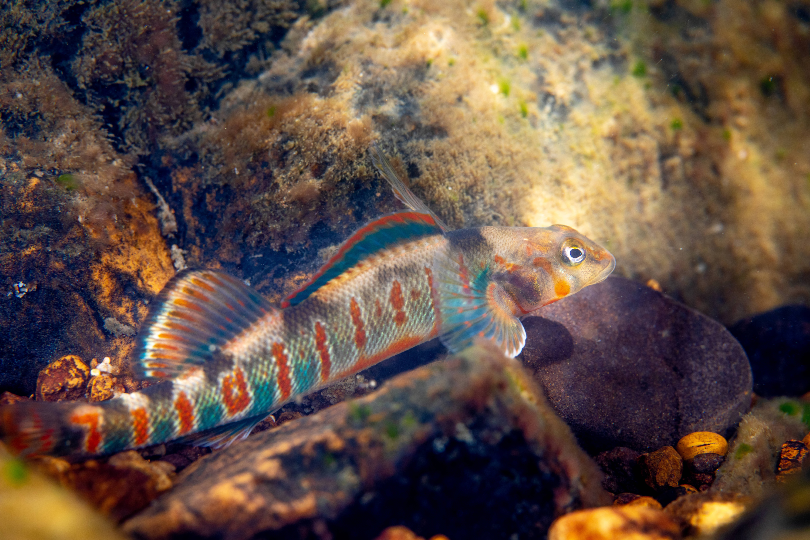The Importance of SHOAL Conservation Society
ON 05/15/2025 AT 04:10 PMFreshwater ecosystems are among the most diverse and threatened habitats on Earth, and SHOAL is making a real difference.

Freshwater ecosystems are among the most diverse and threatened habitats on Earth. Covering less than 1% of the planet’s surface, rivers, lakes, and wetlands support over 10% of all known species. Yet, these vital systems face unprecedented challenges, with freshwater species undergoing rapid population declines and extinctions. In response to this escalating crisis, SHOAL has emerged as a global initiative dedicated to conserving the world’s most threatened freshwater species, with a particular focus on fish. Through collaboration, capacity building, and raising awareness, SHOAL is striving to halt extinctions and recover populations of these critical species, making it an indispensable force in global conservation efforts.
Organizational Structure and Partnerships
SHOAL operates under the stewardship of two prominent conservation organizations: Synchronicity Earth, based in the UK, and Re:wild, headquartered in the USA. These hosts provide the operational framework for SHOAL and constitute its governing council, guiding the work of a small secretariat. This lean structure allows SHOAL to remain agile while relying heavily on its network of strategic partners—institutions that share its mission and contribute expertise and resources to achieve its objectives. This collaborative model amplifies SHOAL’s reach and effectiveness, enabling it to coordinate conservation efforts across multiple regions and ecosystems. By fostering partnerships with organizations worldwide, SHOAL exemplifies how collective action can address complex environmental challenges.
Benefits and Challenges of Freshwater Conservation
Joining SHOAL offers significant advantages for organizations and individuals committed to freshwater conservation. Membership in the SHOAL network facilitates capacity building, connecting participants with technical expertise and enhancing the impact of their conservation projects. A key tenet of SHOAL’s approach is community engagement, recognizing that conservation is most effective when it delivers tangible benefits—such as improved food security—to local populations living alongside freshwater ecosystems. These efforts not only protect biodiversity but also support human livelihoods, underscoring the interconnectedness of ecological and social systems.
Despite its successes, SHOAL confronts substantial obstacles, chief among them a chronic lack of funding for freshwater species conservation. This funding shortfall has created gaps in capacity and knowledge, hindering comprehensive action. To bridge these gaps, SHOAL employs innovative and flexible funding approaches, seeking to maximize the impact of limited resources. Addressing this challenge is critical, as the decline of freshwater species continues unabated without sufficient investment in their protection.
The SHOAL Blueprint: A Vision for the Future
Central to SHOAL’s mission is the Blueprint for Conservation Action for 1,000 Freshwater Fishes by 2035, an ambitious and collaborative framework designed to mobilize conservation efforts for 1,000 of the world’s most threatened freshwater fish species. This initiative reflects SHOAL’s commitment to scaling up action and achieving measurable outcomes on a global scale. Leading this effort is Mike Baltzer, SHOAL’s Executive Director, supported by a team of dedicated experts from partner organizations and volunteers. Their collective work exemplifies the determination and expertise required to transform SHOAL’s vision into tangible results, offering a roadmap for reversing the decline of freshwater biodiversity.
Tangible Contributions and Projects
SHOAL’s impact extends beyond strategic planning to hands-on conservation initiatives. One notable example is the Anguillids of Ambon project, which focuses on the community-led conservation of freshwater eels in Ambon. This project highlights SHOAL’s emphasis on localized action and community involvement, tailoring conservation strategies to the needs of specific species and regions. Additionally, SHOAL contributes to scientific understanding through its annual New Species reports, which document newly described freshwater fish species each year. These reports not only advance taxonomic knowledge but also serve as a powerful tool for raising awareness about the diversity and vulnerability of freshwater ecosystems, reinforcing the urgency of conservation efforts.
Engaging Individuals in the Mission
SHOAL’s success depends not only on institutional partnerships but also on the active participation of individuals. The organization offers multiple avenues for involvement, including:
- Donating to specific conservation projects.
- Participating in hands-on initiatives.
- Sharing project updates on social media to amplify awareness.
- Supporting local conservation efforts in one’s own community.
- Joining associations or expert networks aligned with SHOAL’s goals.
- Adopting sustainable practices to reduce personal environmental impact.
These actions empower individuals to contribute directly to the preservation of freshwater species, fostering a broader culture of conservation and accountability.
Conclusion: A Beacon of Hope
In conclusion, SHOAL stands as a pivotal organization in the global effort to safeguard freshwater species. Its collaborative approach, focus on capacity building, and ambitious initiatives like the Blueprint for Conservation Action position it as a leader in addressing the freshwater biodiversity crisis. By uniting organizations and individuals under a shared mission, SHOAL is making significant strides toward halting extinctions and ensuring the survival of threatened species. The importance of SHOAL lies not only in its current achievements but also in its potential to inspire and sustain long-term conservation action. For the sake of biodiversity and the communities that depend on freshwater ecosystems, supporting SHOAL is an investment in a resilient and thriving natural world.